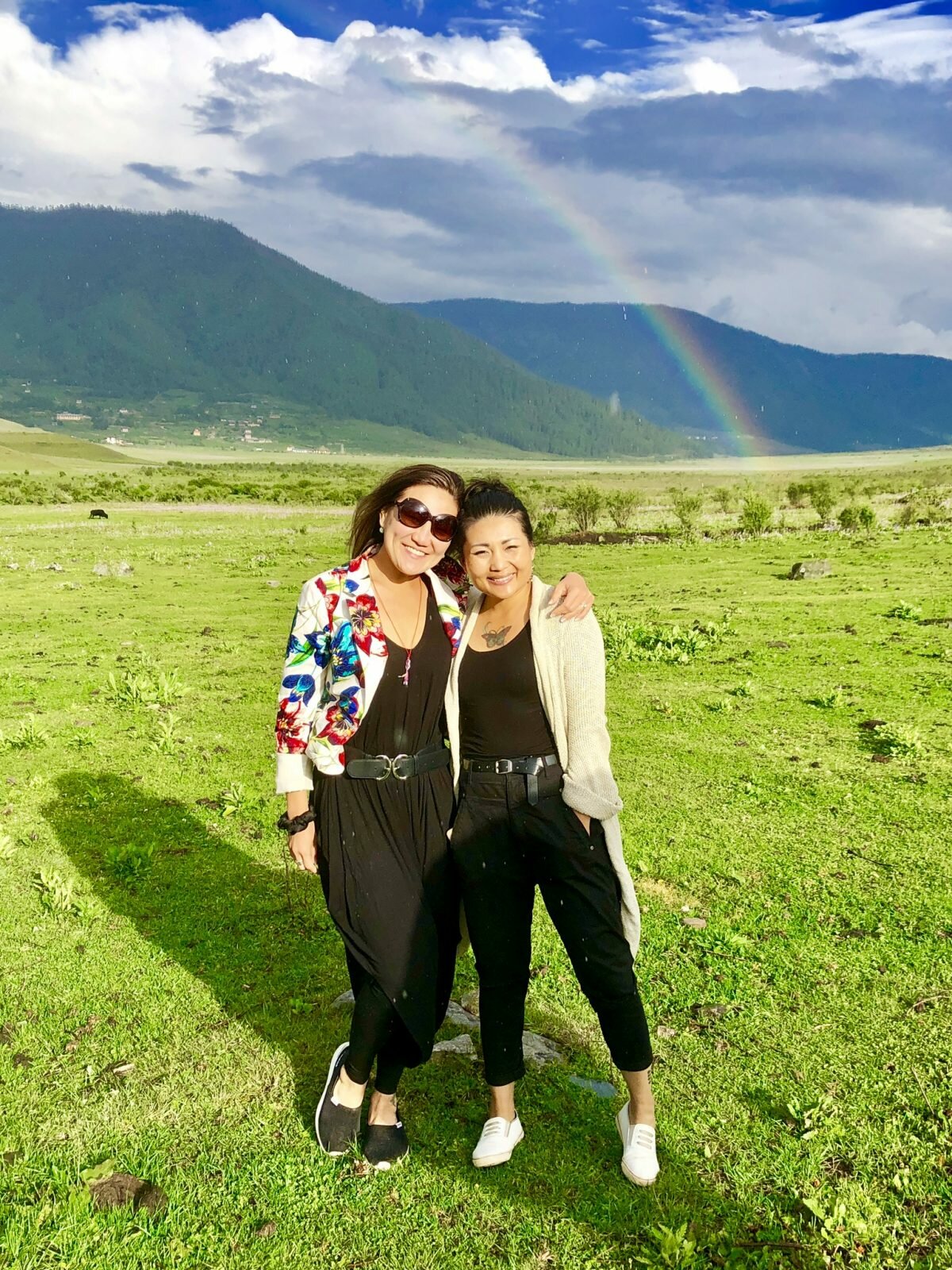It’s easy to make filmmaker and creative Loretta Chen laugh. Perhaps its because she’s been living in Hawaii for the last five years, having moved to pursue love and a life free from the big-city hustle.
She’s even chipper about her debilitating leg injuries — she “ripped both knees” in a surfing accident in 2015 and was later diagnosed with advanced osteoarthritis and miserable malalignment syndrome; “My leg bones are misaligned and my joints are crap,” she quips, wryly. “My latest surgeries in Hawaii were very brutal and I’m never the same again, but I take it in my stride — literally.” (She hasn’t quite forgotten her cosmopolitan roots, though. “I still move too fast for the average Hawaiian,” she laughs.)
So it makes sense that the 43-year-old’s latest film would centre around the ever-elusive concept of happiness. More specifically, the secret behind it.
Secrets to Happiness takes place in the mythical Kingdom of Bhutan, whose philosophy of ‘Gross National Happiness’ has turned it into something of a beacon for harried city-dwellers around the world.
Chen’s film — which you can watch here —is slated to screen at numerous festivals this year, including the Cannes International Independent Film Festival.

(Image: Loretta Chen)
The premise is simple: Chen, channeling part Bourdain as she traipses through rocky passes to reach mountaintop temples, and part Oprah as she and her subjects divulge their struggles in interviews that frequently turn emotional, is on a quest to find the Bhutanese’s recipe for happiness. There are tears and laughs in equal measure.
But in her quest, Chen acknowledges that being one of the World’s happiest places does not exempt it from hardship and poverty.
The United Nations Development Programme estimates that 12 percent of Bhutan’s population lives below the poverty line. Unemployment also remains a point of concern for the government, especially amongst women and the country’s rapidly growing youth population, where numbers are the highest.
In her film, Chen also notes that the root of Bhutan’s happiness isn’t about blindly accepting the old adage of ‘don’t worry, be happy’. She meets people who show her how they remain happy in spite of the sadness they have endured: see the tour guide who travels every day on the same roads his son died on, content that he can share stories of his country and his child with people from around the world, and the young schoolgirl that says: “What makes me happy is that I’m content whatever I have — that I’m satisfied with whatever I have in my life.”
They say art imitates life, and Chen’s film is no exception. Beneath her indomitable cheer is a quiet veneer of introspection: twenty years ago, her then-partner committed suicide — an event that would set Chen down her own twisting journey of self-discovery.

(Image: Loretta Chen)
Today, Chen says that she’s more contented than she ever was. She’s a ‘fur-mom’ to eight cats (yes, eight), and her weekends consist of being home with them, her husband, and picturesque views of Hawaii’s mountains and oceans from her windows.
It’s no surprise that Chen is, for the most part, easy-going — but after all these years, there’s still one thing that she puts her foot down on: and that’s about how artists and creatives are treated in Singapore.
“There’s no respect for creative talent amongst the masses,” she says firmly. “Most clients want excellent creative work, but to have it ‘cheaper, faster and better’ — which, by the way, was an old NTUC slogan I’m so relieved they got rid of.” (“Imagine using that as a rallying cry for a union,” she mutters, sotto. “Salah messaging, right?”)
Chen states that while Singapore’s creative scene has grown in the last decade, the mindsets of the masses have not.
“Just last year, I had a head honcho at a private bank text to ask for a designer ’that is Poly student price’ but ‘professional standard’,” she says. “We don’t usually haggle with brain surgeons, so why would we do so with creative minds?”
It’s one of the reasons why Chen wouldn’t return to Singapore as a creative. She finds great joy in her work as an adjunct professor at the University of Hawaii, Leeward Community College and its satellite Waianae Moku campus (the region, she says, which has ‘one of the highest poverty rates in the state’). Chen has made it something of her mission to rally them to continue with their college education.
“It sounds cheesy, but I really do wish to leave this world a better place than when I found it,” she says, smiling.
Chen might catch herself dreaming of challenging projects of a global scale — like those she used to handle in her past life as creative director for branding agency The Activation Group — but she knows that she’s finally found her place in the world. Even if everyone around her walks at a ‘glacial’ pace.
This story is part of A Magazine’s feature on women of note for International Women’s Day.
